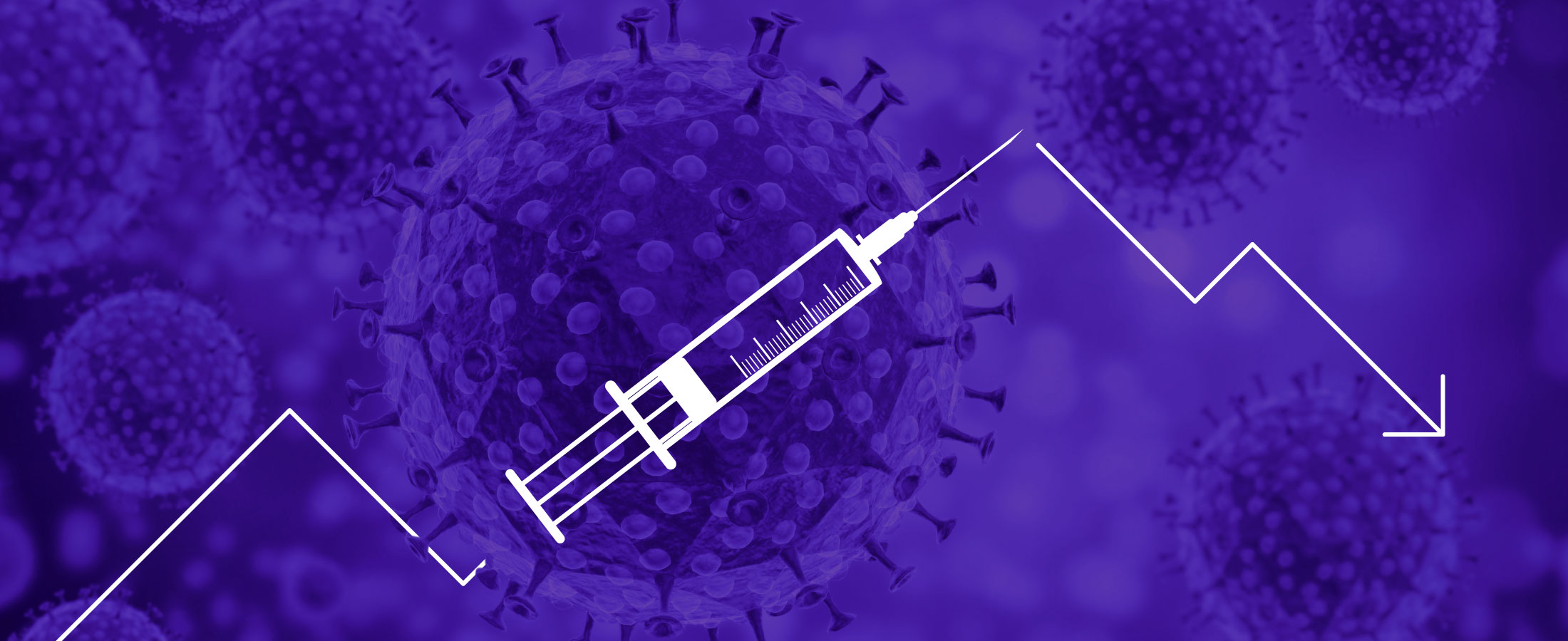Mar 18, 2020
The Race to Find a Coronavirus Vaccine
As the markets react to the outbreak, the biotech industry is searching for a solution.

Coronavirus may give the biotech industry a shot in the arm.
As the coronavirus continues to spread, rattling the markets, things are heating up in the biotech world, where companies are racing to develop a vaccine to battle Covid-19, as the virus is known.
Since the outbreak started in Wuhan, China, in December, 2019, more than 194,000 people have contracted the virus, and more than 7,800 people have died. In the U.S., more than 5,700 people have been infected and more than 90 have died. The World Health Organization (WHO) has classified the outbreak of the virus as a pandemic.
While a broad swath of companies including Apple, Microsoft, Nike, and Tesla have said the virus will potentially affect their quarterly earnings, the virus might actually benefit some biotechnology and pharmaceutical companies. Novavax, Inovio Pharmaceuticals, and Moderna are just three of the companies developing vaccines for the virus and are preparing to test them.
How is the outbreak affecting the global economy?
The markets have tumbled since the outbreak started spreading in the United States at the end of February. . The Dow Industrial Average and the S&P 500—the stock market’s main bellwether—fell into a bear market on March 11, 2020. A bear market is defined as a period when prices on an index fall 20% or more from a previous high, perhaps after a bull market.
(The Dow is an index, or a measurement of the stock market and includes 30 of the largest publicly traded companies traded on the stock market. The S&P 500 is an index of the 500 largest companies by market cap in the U.S.)
Stock indexes have fallen due to uncertainty surrounding the spread of Covid-19. The coronavirus has spread to 163 countries including Italy, Iran, France, the United Kingdom, and the United States. The CDC warned that Covid-19 is a serious threat to public health and that people should be on the lookout for symptoms of the coronavirus, which are similar to those of the flu.
Meanwhile, many businesses that operate in China have slowed down their activity. Apple closed all 42 of its Chinese Apple stores at the beginning of the outbreak. Car manufacturer Tesla also temporarily closed its factory in China. Meanwhile, coffee chain Starbucks and Scandinavian furniture design store Ikea both temporarily closed more than half of their Chinese stores, according to the New York Times. In the first two months of 2020, China’s industrial output declined by 13.5% and retail sales decreased by 20.5%, according to Reuters.
How is the biotech industry responding to the virus?
Despite this economic slowdown, Covid-19 has presented biotech companies with an opportunity to develop a vaccine. Amid the outbreak, Inovio, Moderna, and Novavax are springing into action.
These biotech companies are reportedly making vaccines by copying RNA from Covid-19. However, they can’t rush their new products to the market. The vaccines first need to be tested in the lab, on animals, and eventually on people. Because of how many rounds of testing vaccines need, it can take 12 to 18 months for a vaccine to be fully developed.
Because of the severity of the outbreak, government agencies such as the National Institute of Health are fast-tracking potential treatments. On February 24, 2020, Moderna sent its Covid-19 vaccine to the National Institute of Allergy and Infectious Diseases, part of the U.S. Department of Health. Vaccine testing on people began on March 16, 2020.
Treatments for people who have already contracted the coronavirus are also in progress. Gilead Sciences is said to be testing an antiviral medicine on patients in China and the U.S. Regeneron is also said to be working on an antiviral treatment, and is said to be working with the government health agencies to test the drug.
From 2002 to 2003, China dealt with a similar outbreak of a different strain of coronavirus which caused Severe Acute Respiratory Syndrome (SARS). SARS killed an estimated 800 people. During that outbreak, a vaccine was developed for testing within 20 months, much longer than the development of potential Covid-19 treatments.
But Covid-19 also appears to be spreading more quickly than past epidemics. It took five months for the number of cases of SARS to reach more than 5,000 people. This new strain first showed up in patients in December, 2019, and spread to more than 5,000 people in a month, according to CNBC.
Mergers in the biotech and healthcare industry
The biotech industry has experienced a surge in mergers in recent years. New tax laws that have encouraged large pharmaceutical companies to “repatriate” cash overseas has given large companies the funds to buy small startups with promising new treatments, according to reports. Similarly, big pharma companies, many of which have lost patent rights for blockbusters like the statin Lipitor, the erectile dysfunction drug Viagra, and the pain relief medication Lyrica, may be looking to acquire smaller biotech firms with promising new drugs.
Here are some examples:
- Bristol-Myers Squibb acquired cancer drug developer Celgene in 2019 for $74 billion. (Celegene acquired Juno Therapeutics for $9 billion in 2018.)
- French company Sanofi said it would purchase U.S. drugmaker Bioverativ for $11.6 billion in 2018.
- F. Hoffmann-La Roche announced plans to acquire a gene therapy company called Spark Therapeutics for $4.8 billion in June, 2019.
The healthcare industry is massive in the U.S., employing more people than any other. In 2017, the number of people working in health care surpassed the next two largest industries, manufacturing and retail.
In 2018, Americans spent $3.65 trillion on healthcare, more than in any other developed country in the world, according to Fortune. And that spending is likely to increase 5.5% per year until 2027.
Keep in mind that investing in any industry comes with risk and that the biotech industry has historically been a volatile one.
Investing in the healthcare industry
You can invest in the healthcare and biotech industries on Stash. Stash offers healthcare and biotech ETFs. Stash also offers single stocks in healthcare and biotech companies.
Remember that diversifying your portfolio of investments is an important part of the Stash Way. And as markets continue to react to the outbreak of Covid-19, investing for the long term is the way to go.











